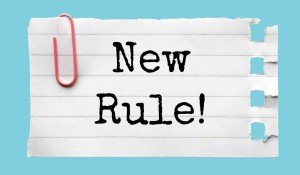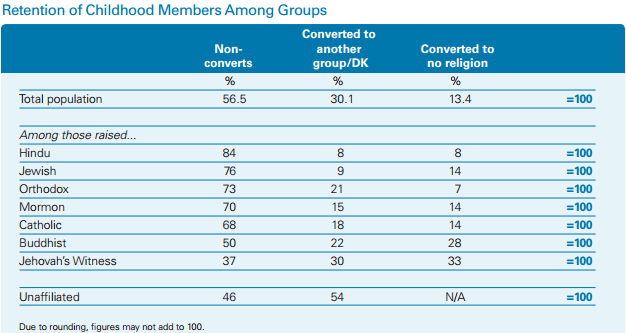This is a reminder that NINT 2025 on the historical Jesus starts this evening. I’ve been given the opportunity to see some of the speakers in the 2025 lineup in action in the previous NINT 2024 conference. Hopefully this provides some insight if you’ve been thinking about attending.
The presentations are lecture-style in a good way. They are presented to be widely accessible and supported by the use of slides to illustrate the points made. The main difference from the lectures you would find in a university, I think, comes from the fact that each presentation is based on the current research interests of one of the scholars involved. This definitely isn’t just textbook material. In many cases the scholars have recently published a paper on the topic, and in the presentation you get to see the points explained and illustrated in a more approachable format. There’s also the opportunity to see the interaction or to ask a question yourself in the follow-up.
I’d like talk about the presentations from a few scholars who presented last year, to give you a sense of what you could look forward to, if you see them present again now.
Robyn Walsh will be giving a presentation on the historical Jesus in the light of the Pauline letters. In the conference last year, Walsh gave a talk about some of the philosophical ideas found in the apostle Paul. Walsh explained how the distinction between the “soul body” (often translated physical body) and “spiritual body” is based on Greek thought about the tripartite division of a man: flesh, soul, and spirit. The idea of spirit is based on the idea of a force that animates something, and it is a more fine sort of material than the soul or, of course, flesh. Walsh explains how the moon was a popular topic of discourse and that there were many ideas about the moon. Some of them even involved the soul or spirit of some people traveling to the moon after death. Paul also seems to believe that resurrection would involve being transformed into a spiritual body. The spiritual body would still be located somewhere, in Greek thought – perhaps the moon or elsewhere in the starry heavens, after being pulled up into the air. This is an interesting corrective to anachronistic presentations of Paul’s thought and provides insight on why Paul’s message would have been appealing.
Paula Fredriksen plans to present an argument that Jesus “never made such a gesture” at the temple, “nor did he ever prophesy the destruction of the temple.” Given the argument made on the other side from scholars like E. P. Sanders, it will be interesting to see how this case is developed. Last year, Fredriksen presented another argument that would be surprising to some: namely, that Jews (including Paul) during the Hellenistic and Roman period acknowledged the existence of ‘many gods and many lords’. I appreciated Fredriksen’s eye for amassing a body of evidence from inscriptions for the wider context here, even including cases when Jews would pay respects or give mention to other gods that were worshipped by their neighbors or in ways expected in particular legal or political contexts. Paul’s reference documented by Fredriksen shows him engaging on the subject of a variety of ‘rulers’ or ‘god(s) of this age’ that are trying to impede the gospel.
Joel Marcus will give a talk on Jesus and the law. The available sources are the gospel texts, which have of course been influenced by later Christian theology, making it difficult to know what the position of Jesus would have been. The presentation last year focused on Paul, and even with the letters available to read at first hand, it is difficult to know what Paul felt about the subject of the law in his heart. The letters present different emphases, sometimes showing more respect towards the law, other times savaging the law as worthless. A key passage is the statement of Paul that he made himself all things to all men, which, as something written by Paul, at least removes doubt about whether different rhetorical strategies with respect to the law were used at different times and with different audiences. Unfortunately, it’s difficult to know what Paul really thought, under the surface level, given the various different statements.
Jason Staples will be part of the round table discussions this year. Staples gave a stimulating talk in 2024 on how the idea of “faith alone” (and related theological ideas) isn’t clearly found in Paul’s letters and may indeed not even be his own model at all. Because I already was under the impression that this isn’t the theology of some other ancient authors, I was curious to see how it might be the case that they aren’t as far apart on this issue as sometimes supposed. Staples explained how the concept of being “justified” could be understood as people being made capable of doing what is right. Staples supports this by reference to the statements in the letters of Paul that speak about everyone being judged on the basis of what they have done.
For the full list of presenters, check out the NINT 2025 page. There’s an impressive list of scholars who are presenting this year. I selected here just a few, from last year’s conference, that I watched and that help to show the quality of the presentations given.
Full disclosure: I am not compensated, but I got access for the purpose of a review.
 Of all the techniques that could be used to study ancient texts, there are a few that stand out as being both very important and largely understudied, being either ignored in practice or taken on faith due to the lack of relevant expertise or accessible tools. The ones that come to my mind right now are these:
Of all the techniques that could be used to study ancient texts, there are a few that stand out as being both very important and largely understudied, being either ignored in practice or taken on faith due to the lack of relevant expertise or accessible tools. The ones that come to my mind right now are these:





